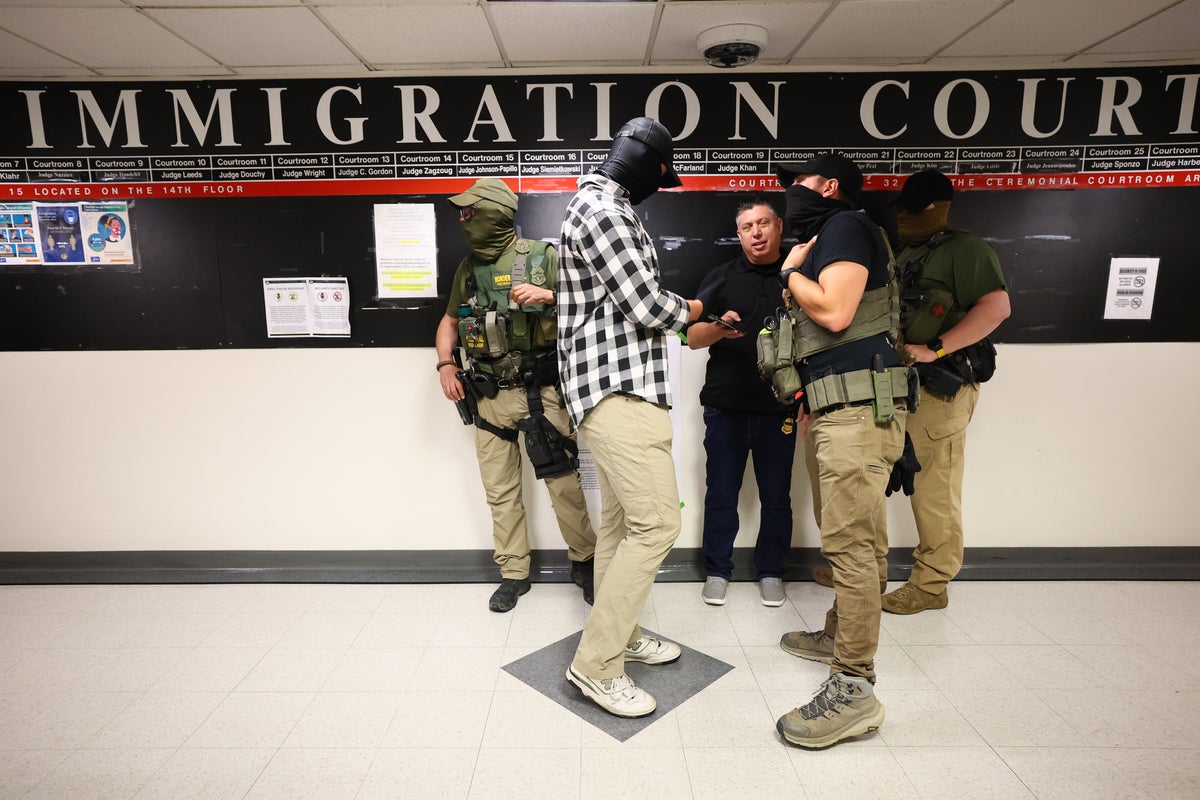
After firing dozens of immigration judges, Donald Trump’s administration is giving itself permission to hire “any attorney” to sit on the bench in immigration court — even if they don’t have any experience in that area of the law.
A rule change Thursday gives Attorney General Pam Bondi broad “discretion” to fill those roles, sparking concerns that the administration is escalating an anti-immigration agenda by employing inexperienced loyalists to make crucial decisions for tens of thousands of people.
The Justice Department fired the acting head of the immigration court system and three other top officials on Trump’s first day in office. In the months that followed, more than 100 immigration judges have been fired or left the bench under pressure to expedite the president’s mass deportation agenda.
“It is confusing that the agency would fire permanent immigration judges and encourage others to retire, and then say that it needs to hire temporary ones faster,” Kathleen Bush-Joseph, policy analyst at the Migration Policy Institute, told The Independent.
Trump’s mass deportation campaign “is only going to increase the pressure on judges to be quickly deciding cases, but given the huge backlog, they will likely continue to strain to meet newly imposed deadlines,” she added.
More than 3.7 million immigrants have pending cases including hearings on asylum claims and whether they can be swiftly deported. Roughly 60,000 people are currently locked up in immigration detention centers across the country.
Unlike federal courts, immigration courts and the judges who run them operate under the Justice Department.
After Trump took office, DOJ’s Executive Office for Immigration Review told judges to grant motions from government lawyers to immediately dismiss immigrants’ cases, making them easy targets for arrest and removal.
That strategy has generated scenes of masked federal agents patrolling courthouse hallways and hauling away immigrants the moment they leave hearings.
Before the rule change this week, temporary immigration judges had to be a former appellate immigration judge; an administrative law judge at the Executive Office for Immigration Review; or an attorney with more than 10 years of experience in immigration law.
Ensuring temporary judges have immigration law experience no longer serves the agency’s interest, according to the agency’s notice.
DOJ now claims that “immigration law experience is not always a strong predictor of success” as an immigration judge.
The agency “may designate or select, with the approval of the attorney general, any attorney” for the role for up to six months — which is renewable, according to the rule change, which was posted on the federal register website.
“The Department declines to adopt any limitations on the number of extensions of the six-month periods or otherwise cap the length of a temporary appointment,” the notice says.
Previous requirements for the job were “too narrow” and “impeded” the agency’s “authority to the extent needed,” according to the notice.
The rule change now gives the administration “flexibility” in hiring, the document says.
“These pop-up judges receive renewable six-month terms, allowing the Trump administration to expand the bench and rapidly supercharge mass deportation,” according to Chicago-based immigration and criminal defense lawyer Mike Baker.
“This rule is more than just a technical update — it marks a fundamental shift from individualized justice to policy-driven mass exclusion, bringing the risk of systemic overreach and serious, irreversible harm to both individuals and the legitimacy of the U.S. immigration adjudication system,” he wrote.
The Justice Department “disagrees” with concerns that Bondi-approved attorneys can’t serve as “neutral arbiters,” according to the notice.
DOJ’s Executive Office of Immigration Review referred The Independent to the notice itself when asked for additional comment, including what prompted the rule change.
The Independent has also requested comment from the union representing immigration judges.
The administration’s actions to strip legal status from immigrants who are in the middle of their court cases have radically expanded a pool of “undocumented” people to add to the president’s demands for mass deportations.
Policy — that has since been abandoned by the Trump administration — sought to prevent courthouse arrests from creating a “palpable fear that disincentivizes people from appearing for their hearings,” according to a class-action lawsuit.
“But in the first few days of the Trump administration, defendants repealed those policies, exposing individuals who properly appear for their hearings, including to seek asylum and other relief, to the imminent threat of arrest and indefinite detention,” the lawsuit stated.
A federal judge in New York this month condemned the Trump administration’s “arbitrary” practice of arresting immigrants as they leave their court hearings, which has created what he calls a “game of detention roulette” that violates due process.
District Judge Dale Ho said the apparent “nationwide campaign” detailed in an internal Immigration and Customs Enforcement memo could sweep up millions of people who are following the law and showing up for their hearings.
ICE “cannot confirm or deny the existence of such a new policy,” yet the government’s position states that federal law enforcement “must categorically detain all undocumented immigrants who they believe have entered the United States unlawfully — no matter how long they have been residing in the country since,” according to Ho.
“But treating attendance in immigration court as a game of detention roulette is not consistent with the constitutional guarantee of due process,” he continued.
